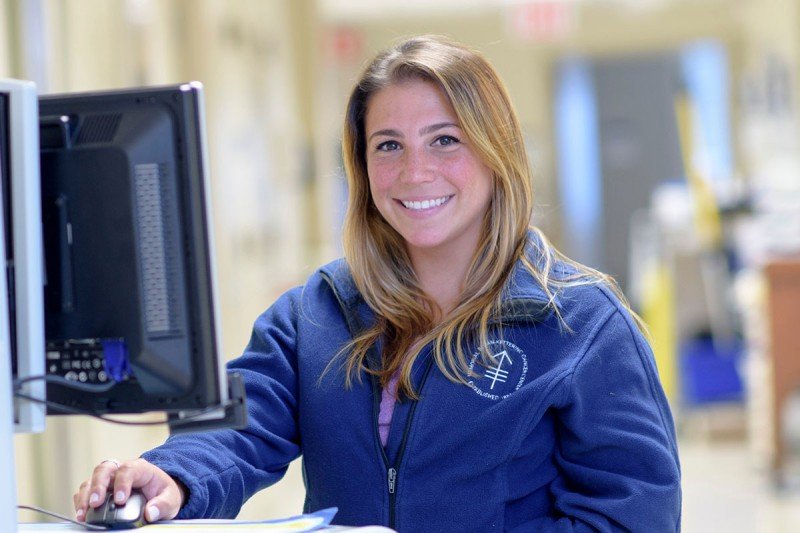
Nikki Gioia is now 26 years old and a survivor of Hodgkin lymphoma. She was diagnosed in 2001 at age ten, relapsed twice, and underwent a transplant using her own bone marrow cells. She knew right out of high school that she wanted to be a nurse. But not just any nurse — a nurse at Memorial Sloan Kettering.
Do you disclose to your patients that you’re a cancer survivor? How do you have this conversation?
If and when appropriate, I sometimes tell them that I am a cancer survivor. However, this is their journey. I never want to make it about me. If the patient needs some words of encouragement and needs hope, I tell them. I believe my story illustrates that people do make it out of this hardship and thrive. It is a difficult conversation to start because I never want to overstep with my patients. I usually listen for a while, then tell them that I understand how they are feeling and what they are going through because I have been in their shoes. Even though my treatment course was not typical, I made it through — I make sure to stress that.
Are you able to connect better with your patients because you’re a survivor?
I don’t know if it’s better — it’s just different. I was and forever will be a patient here, since I continue to have long-term follow-up as an adult. I can connect with my patients on their level. I have been on the patient’s side of the bed and have had some of the same pains and distress. A majority of the time, it’s the uncertainty that I connect with most. There is always a fear that your world will be halted by cancer. As my parents have always told me, and I now tell my patients, “It is what it is and will we get through it together.”
Do you think patients are able to connect better with you because you have gone through a similar experience?
I think that patients are able to connect with me because we have all been through it. We understand the pain, the ordeal and stress that another clinician may not be able to appreciate. Something as silly as a shared taste of a certain medication will make a connection. Also, I try my best to never forget the caregivers. I always remember that my parents and brother went through it with me. Their experience and vantage point is different, but they were right by my side for every medication and blood draw. I have immense respect and gratitude for caregivers.
Has your experience as a survivor helped you as a clinician or made it more challenging?
Being a cancer survivor has helped me as a clinician. Sometimes patients find it hard to express their frustration or pain. I can help put that frustration into words, help them cope, and help medical staff understand what they want or need. Sometimes patients just want a clinician to sit with them or to let them know they are coming back. I have realized that saying “I will be back” is often the best thing I can say to a patient. It is something so little, but it puts them at ease, knowing they are not alone. After my treatment, all I wanted to do was get away from MSK, but now I can’t imagine doing anything else. I believe things happen for a reason, and if I didn’t go through cancer treatment and the adversity that followed, I would never be doing what I am doing today — paying forward the care that was given to me by my amazing nurses, medical team, and staff.





